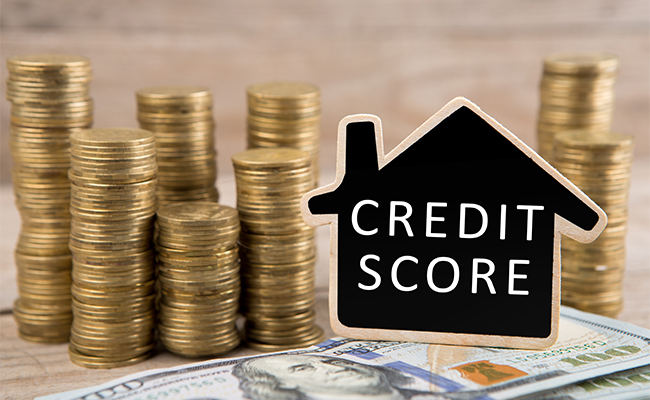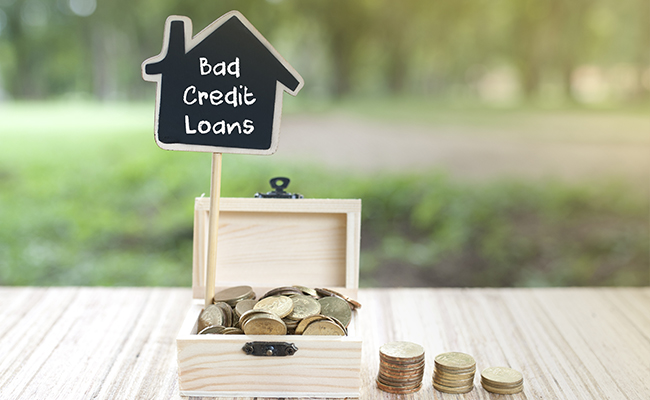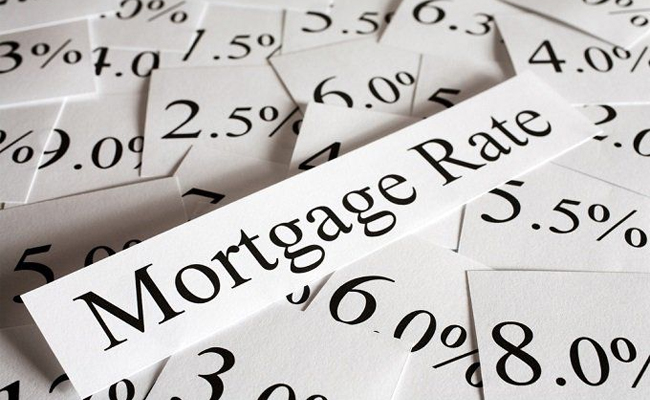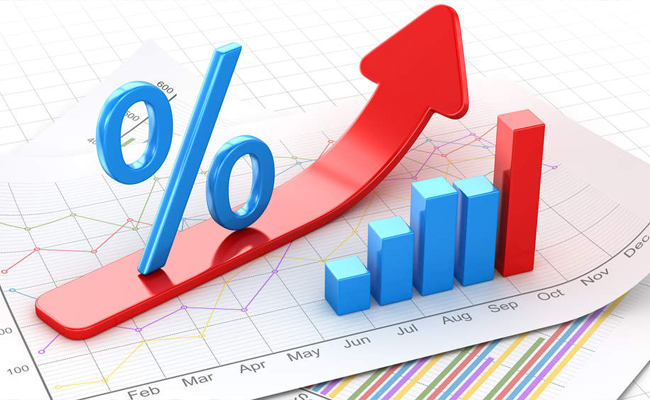Credit Score Needed to Buy a House: What Is the Cutoff?
Unlocking the door to homeownership is an exciting and significant milestone in one’s life. People who aspire to be homeowners always want to know the needed credit score to buy a house.
This article will explore how credit scores impact your ability to get a mortgage. We’ll unravel the mysteries surrounding credit scores and give you the knowledge you need to make informed decisions. Understanding credit scores can increase your chances of getting a mortgage and moving closer to owning your dream home.
What Credit Score Do You Need to Buy a House?
When qualifying for a mortgage, different credit companies have varying criteria. Some may approve loans for individuals with credit scores as low as 500 or 660.
Unfortunately, these loans often come with high-interest rates and unfavorable terms. The real challenge lies in qualifying for a mortgage with low-interest rates and fair conditions.
In the USA, the current credit score requirement is 695. However, to secure a mortgage with fair interest rates, you must aim for a credit score of at least 740 before applying. Achieving this credit score threshold will significantly improve your chances of obtaining a mortgage with favorable terms.
Need to know what your credit score is? Check credit score
How to Get a Fair Mortgage with Bad Credit Score
A good credit score is needed to buy a house. To get your dream home, you need to enhance your creditworthiness.
However, if you find yourself in a situation where you urgently need a mortgage and have a poor credit score, government loans can be a viable option.
It’s important to note that the government does not directly fund most government loans. Instead, the government provides protection or guarantees for these loans.
Applying for a non-funded government loan can be advantageous as it allows you to obtain a private loan with more favorable terms and lower interest rates. These government-secured loans involve a co-signing arrangement between the borrower and private companies.
On the other hand, government-funded loans rely on capital sourced from taxpayers’ dollars. The government’s involvement as a guarantor implies that if the borrower defaults on loan repayment, the government is responsible for repaying the lender. This provides an added layer of security for both the borrower and the lender.
Read More: Home Repair Loans: How To Get Money to Fix Your House?
Types of Government-Secured Loans
FHA (Federal Housing Administration) Loan Refinance
Citizens with home equity can use the house’s equity as payment for a large purchase or for reduced bank interest rates on loans. To qualify for the FHA loan, the place with equity must be your principal residence. Additionally, having a minimum credit score of 580 would be best.
FHA refinance options include:
- Cash-Out Refinance
- Streamline Refinance
- No Cash-Out Refinance
USDA Refinance Loans
The good news for those with a USDA loan is that they’re eligible for a USDA refinance loan. This loan allows eligible homeowners to borrow a home loan with a reduced interest rate, despite the mortgage-to-value cap. You don’t need any home price appraisal or out-of-pocket expenses because closing costs can be added.
USDA Streamline Assist refinance requirements:
- Due payment for at least a year.
- Mobile houses are not included in the program.
- Participants are not allowed to cash out.
VA Home Loans
The Veteran’s Administration loan is designed for veterans, service members, and surviving spouses. There are two options, namely:
VA Cash-out Refinance Loan:
This option is for eligible members who want to withdraw their home equity to settle debt, pay school fees or upgrade their home. It’s also possible to convert a non-VA loan into a VA Loan by refinancing.
VA Interest Rate Reduction Refinance Loan:
This loan is only available to those with a current VA-guaranteed loan. Its purpose is to reduce your monthly payments and VA loan interest rate.
Note: applying for a new VA refinance loan doesn’t change your eligibility status.
Read More: Applying for a Home Loan: 5 Things You Need to Know
How Does Your Credit Score Affect Your Mortgage Rate?
Although it’s not the only criterion, your credit score can determine whether or not the credit card company approves your loan application. Other factors to consider include debt-to-income ratio, account balance, and money available towards the down payment.
A good score ranging from 740 upwards guarantees lower interest rates and fairer terms. However, even a poor credit score can qualify you for a home loan (at a higher interest rate). The price increase is due to the perceived risk of lending money to a consumer with bad credit history. Lenders increase the interest rate in case the borrower defaults.
Read More: How to Get a Home Equity Line of Credit?
What Interest Rate Can I Expect with My Credit Score?
Could you check to see the category you belong to? Below is the list of interest rates per credit score (in the USA);
- Bad — credit score range is from 300 to 579. With a low credit score, expect a high-interest rate on your loan.
- Average — the credit score range is from 580 to 669. An average credit score can get you a fair interest rate, depending on the credit score company you’re applying to.
- Good— the credit score range is from 670 to 739. With a good credit score, expect rates within 0.25% to 0.5% of the lowest available.
- Excellent — an excellent credit score starts at 740. You can get the lowest interest rates and the best payment terms within this credit score range.
Read More: How to Get a VA Home Loan with Bad Credit
Final Thoughts
In conclusion, understanding the credit score needed to buy a house is crucial for aspiring homeowners. While different credit companies have varying criteria, aiming for a credit score of at least 740 significantly improves the chances of securing a mortgage with favorable terms and low-interest rates.
Government loans can be a viable option for those with poor credit scores, providing opportunities for private loans with better terms and lower rates. It’s important to regularly check and improve your credit score to enhance your creditworthiness. Being informed and proactive can increase your likelihood of obtaining a mortgage and opening the door to homeownership.
Read More: What Is a Reverse Mortgage? Explained
Frequently Asked Questions
Can I qualify for a mortgage with a limited credit history?
Limited credit history can make it more challenging to qualify for a mortgage. Lenders typically rely on credit history to assess an individual’s creditworthiness. However, some lenders may consider alternative credit data, such as rental payment history, utility bills, or other non-traditional credit sources, to evaluate loan applications from individuals with limited credit history. I think it’s important to discuss your specific situation with potential lenders and explore options tailored for borrowers with little credit history.
Can a cosigner with a higher credit score help me qualify for a better mortgage?
A cosigner with a higher credit score can positively impact your mortgage application. Lenders consider the creditworthiness of all borrowers, including cosigners. If your credit score is lower, a cosigner with a higher credit score can help offset the risk in the eyes of the lender. This may increase your chances of qualifying for a better mortgage with more favorable terms and lower interest rates. However, it’s important to remember that you and your cosigner are responsible for repaying the mortgage, so careful consideration should be given before having a cosigner.
Will a high credit score guarantee the lowest mortgage rate?
While a high credit score greatly improves your chances of securing a mortgage with a low-interest rate, it doesn’t guarantee the absolute lowest rate available. Lenders consider various factors besides credit scores, such as income, debt-to-income ratio, and down payment amount. However, maintaining a high credit score significantly increases the likelihood of qualifying for lenders’ most competitive interest rates.
Published on April 20, 2019; updated on May 20, 2019; updated on June 29, 2023.
Sponsored Advertising Content:
Advertorial or Sponsorship User published Content does not represent the views of the Company or any individual associated with the Company, and we do not control this Content. In no event shall you represent or suggest, directly or indirectly, the Company's endorsement of user published Content.
The company does not vouch for the accuracy or credibility of any user published Content on our Website and does not take any responsibility or assume any liability for any actions you may take as a result of reading user published Content on our Website.
Through your use of the Website and Services, you may be exposed to Content that you may find offensive, objectionable, harmful, inaccurate, or deceptive.
By using our Website, you assume all associated risks.This Website contains hyperlinks to other websites controlled by third parties. These links are provided solely as a convenience to you and do not imply endorsement by the Company of, or any affiliation with, or endorsement by, the owner of the linked website.
Company is not responsible for the contents or use of any linked website, or any consequence of making the link.
This content is provided by New Start Advantage LLC through a licensed media partnership with Inquirer.net. Inquirer.net does not endorse or verify partner content. All information is for educational purposes only and does not constitute financial advice. Offers and terms may change without notice.






